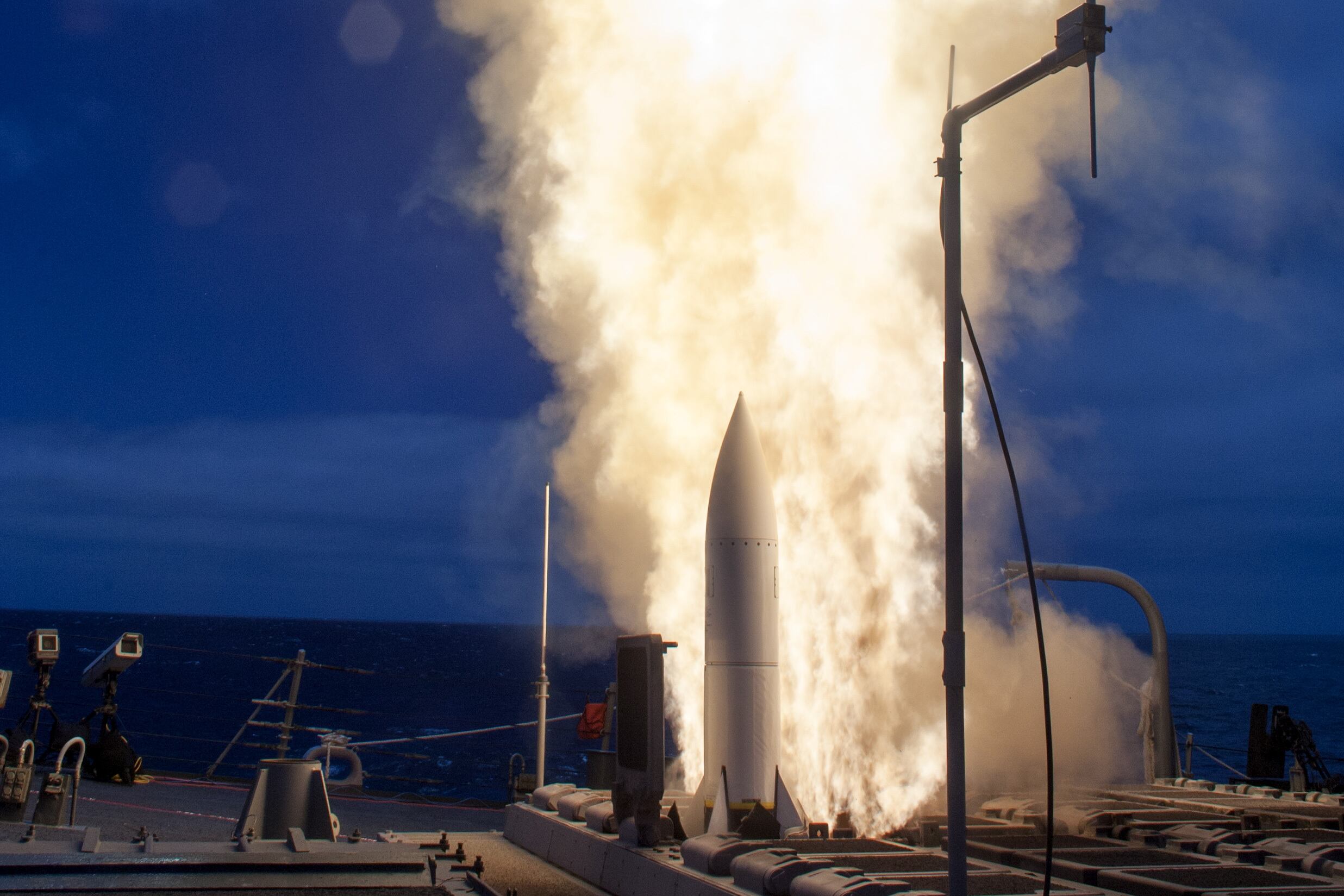WASHINGTON ― A niche appropriations debate on multiyear munitions buys has ballooned into one of the numerous partisan standoffs over the defense spending bill.
House Republicans are refusing to allow the Pentagon to use multiyear contracts for two munitions programs, citing previous cost variations and delays during an earlier contract with RTX, formerly Raytheon Technologies.
But the White House wants Republican appropriators to fund multiyear buys for the two missile programs, arguing doing so will help ramp up the beleaguered munitions-industrial base. And House Democrats have criticized Republicans’ refusal, arguing it makes them weak on China.
Further complicating the situation, Republicans have failed to advance their defense spending bill three times over the past two weeks with a government shutdown looming on Sunday. As Congress hurtles toward a shutdown at worst, and a stopgap funding measure at best, the Pentagon will not be able to start making multiyear purchases for any munitions whatsoever until several weeks or months down the line.
The Pentagon’s fiscal 2024 budget request asks for $1.4 billion to fund the seven munitions identified as high-priority over five years and another $1.9 billion to procure their components in bulk buys.
House Republicans funded the Pentagon’s multiyear request for five of them: the Naval Strike Missile, Guided Multiple Launch Rocket System, PATRIOT Advanced Capability-3, Long-Range Anti-Ship Missile and the Joint Air-to-Surface Standoff Missile.
But they stopped short, opting not to fund multiyear purchases for the Navy’s Standard Missile-6, dubbed SM-6, or the Air Force’s Advanced Medium Range Air-to-Air Missile, known as AMRAAM.
While multiyear procurement is more commonly used to purchase big-ticket items like ships and aircraft, the Defense Department hopes doing the same for munitions will help defense companies accelerate production by ensuring demand stability. The defense-industrial base has struggled to quickly replenish the billions of dollars worth of munitions drawn down from U.S. stockpiles for Ukraine.
And war games hosted by the House China Committee in April found the U.S. would rapidly run out of munitions — including the SM-6, Naval Strike Missile and Long-Range Anti-Ship Missile — in a war with Beijing in the Pacific. That committee endorsed multiyear munitions buys as part of a series of 10 bipartisan recommendations on Taiwan it drafted in May.
Republicans on the House Appropriations Committee declined the Pentagon’s $1.9 billion bulk buy request for all seven munitions programs when it advanced its defense spending bill along party lines in June, prompting Democratic appropriators to accuse them of failing to “counter Chinese communist party threats” via a pair of news releases.
A report accompanying the defense spending bill said the Pentagon “failed to provide the committee with cost savings expected to be generated by” the bulk procurement request.
The Republican bill allocates $1.4 billion in multiyear munitions buys for all the requested munitions except the SM-6 and AMRAAM.

A report accompanying the bill states the Appropriations Committee “strongly agrees with the need to ensure the munitions industrial base has steady demand from the Department of Defense to meet national defense requirements.”
But it adds, “The committee is particularly concerned the department cannot provide realistic cost estimates and has proceeded with these multiyear procurement requests without a firm understanding of each program’s unit cost and production capacity.”
The report does not offer details on the cost variations and production pace.
“RTX appreciates the efforts by the department to increase capacity and drive stability into the missile industrial base through the use of multiyear contracts,” company spokesman Chris Johnson told Defense News in a statement. “Every program is unique, and we are working with the department to respond to congressional questions as part of the budget process.”
Johnson added that the SM-6 delays are “caused in large part by delays in solid rocket motor manufacturing” and said RTX is working with the Navy to identify alternative sources.
On the AMRAAM, he noted RTX is “working with the Air Force on options which would address production gaps and extend the program of record to drive savings.”
Congress first authorized sweeping multiyear munitions buys in the FY23 defense policy bill. Democrats controlled both chambers at the time, but appropriators provided almost no money to fund multiyear munitions purchases for FY23. A White House statement on the defense spending bill earlier this month “strongly opposed” the lack of multiyear funding for the SM-6 and AMRAAM and the absence of bulk funding for all seven munitions in FY24.
The Senate’s defense spending bill, which the Appropriations Committee advanced 27-1 in July, fully funds multiyear buys for all seven munitions but calls for “greater and more consistent industry co-investment” commitments “to more equitably share both the costs and benefits.”
Regardless, the Pentagon cannot ink contracts for munitions during the likely event of a shutdown starting next week. And various versions of the short-term spending bills proposed so far explicitly bar the Defense Department from multiyear procurement until Congress passes a full budget.
Bryant Harris is the Congress reporter for Defense News. He has covered U.S. foreign policy, national security, international affairs and politics in Washington since 2014. He has also written for Foreign Policy, Al-Monitor, Al Jazeera English and IPS News.





